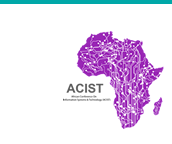Start Date
26-8-2021 12:00 AM
End Date
27-8-2021 12:00 AM
Description
FinTech innovations enable the provision of financial services to many unbanked across the world by increasing access. The key role of FinTech to drive financial inclusion however suffers significant impediments including the digital divide. Nevertheless, there is paucity of elaborate theories on financial inclusion while extant literature on FinTech only identify factors that drive its acceptance and use with little attention to inhibitors such as the digital divide. Employing the unified theory of acceptance and use of technology (UTAUT2) and the model of digital inequality, this study investigates the impact of FinTech usage on financial inclusion amidst the digital divide. A structural equation modelling technique is applied to data collected from 282 respondents in a survey. The findings confirm the influence of performance expectancy and facilitating conditions on behavioural intentions as well as a positive influence of FinTech use on financial inclusion. The results also show that digital divide measured with access, resource and force moderate the use of FinTech. Significant theoretical contributions are made by the study and practical and policy implications are offered for deepening financial inclusion.
Fintech Use, Digital Divide and Financial Inclusion
FinTech innovations enable the provision of financial services to many unbanked across the world by increasing access. The key role of FinTech to drive financial inclusion however suffers significant impediments including the digital divide. Nevertheless, there is paucity of elaborate theories on financial inclusion while extant literature on FinTech only identify factors that drive its acceptance and use with little attention to inhibitors such as the digital divide. Employing the unified theory of acceptance and use of technology (UTAUT2) and the model of digital inequality, this study investigates the impact of FinTech usage on financial inclusion amidst the digital divide. A structural equation modelling technique is applied to data collected from 282 respondents in a survey. The findings confirm the influence of performance expectancy and facilitating conditions on behavioural intentions as well as a positive influence of FinTech use on financial inclusion. The results also show that digital divide measured with access, resource and force moderate the use of FinTech. Significant theoretical contributions are made by the study and practical and policy implications are offered for deepening financial inclusion.



